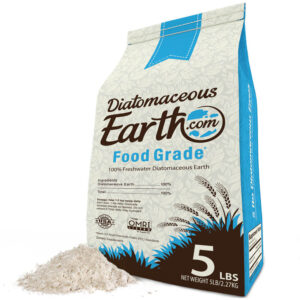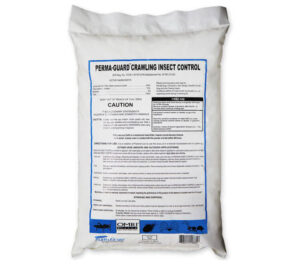If you’re a backyard chicken keeper or manage a small flock of hens, you might already know the importance of maintaining a clean and healthy coop. Diatomaceous earth (DE) is a popular natural solution that can help keep your hens healthy by controlling pests, improving coop hygiene, and even supporting their overall well-being. I’ve used DE in my coop, and it’s a game-changer when it comes to maintaining a healthy environment for hens. Let’s explore how to use diatomaceous earth safely and effectively for your flock.
Benefits of Using Diatomaceous Earth for Hens
Diatomaceous earth can provide several benefits for hens and their living environment:
- Pest Control:
- DE is highly effective against mites, lice, fleas, and other parasites that can infest chickens. It works by drying out and killing these pests when they come into contact with it.
- Coop Hygiene:
- DE helps control odors and absorb moisture in the coop, reducing ammonia buildup and making the environment healthier for your chickens.
- Dust Baths:
- Chickens love dust baths, and adding DE to their dust bath area can help them naturally control external parasites.
- Internal Parasite Control:
- Some chicken keepers use food-grade DE as a dietary supplement to help control internal parasites like worms.
How to Use Diatomaceous Earth for Chickens
To get the most out of diatomaceous earth for your hens, it’s essential to use it correctly. Here’s how you can use DE safely and effectively in your chicken coop and on your flock:
1. For External Parasite Control
External parasites like mites and lice can cause significant discomfort and health issues for chickens. DE can help prevent and eliminate these pests when applied correctly.
- How to Apply DE to Chickens:
- Choose Food-Grade Diatomaceous Earth: Always use food-grade DE to ensure it is safe for use around animals.
- Lightly Dust Chickens: Hold each chicken gently and sprinkle a small amount of DE onto their feathers, focusing on areas where mites and lice tend to gather—such as around the vent, under the wings, and on the back.
- Rub DE into Feathers: Gently rub the DE into their feathers and down to the skin, being careful to avoid their eyes, nose, and mouth.
- Repeat Every Few Weeks: Reapply DE every few weeks or as needed, especially during the warmer months when parasites are more active.
- Tips:
- Wear a mask when applying DE to avoid inhaling the fine powder.
- Apply in a well-ventilated area to minimize dust exposure for both you and the hens.
2. For Dust Baths
Chickens instinctively take dust baths to clean themselves and remove parasites. Adding DE to their dust bath area can enhance its effectiveness.
- How to Use DE in Dust Baths:
- Prepare the Dust Bath Area: Choose a location in the chicken run or coop where hens naturally take dust baths or create a designated dust bath box.
- Mix DE with Other Materials: Combine 1 cup of food-grade DE with 4–5 cups of sand, dirt, or wood ash to create a balanced dust bath mixture.
- Encourage Regular Use: Chickens will naturally use the dust bath to clean themselves. Ensure the area remains dry, as DE is only effective when dry.
- Refresh Regularly: Replenish the dust bath area with fresh DE and other materials every few weeks or after rain.
3. For Coop Maintenance and Hygiene
Keeping the coop clean is essential for preventing infestations, controlling odors, and maintaining overall health. DE can help by absorbing moisture and reducing odors.
- How to Use DE in the Coop:
- Clean the Coop First: Start by cleaning out old bedding, droppings, and debris from the coop.
- Apply a Thin Layer of DE: Sprinkle a thin layer of DE on the floor, in nesting boxes, along roosts, and in corners where pests may hide.
- Mix with Bedding: Mix DE with fresh bedding materials like straw, pine shavings, or hay. This will help keep the bedding dry and reduce ammonia odors.
- Reapply Regularly: Refresh the DE in the coop every time you change the bedding or perform a deep clean.
- Tips:
- Use a duster or shaker to apply DE evenly.
- Be careful not to create dust clouds that could irritate your lungs or the chickens’ respiratory systems.
4. For Internal Parasite Control
Some chicken keepers use DE as a dietary supplement to help control internal parasites like worms.
- How to Feed DE to Chickens:
- Mix DE with Feed: Add 1% of DE by weight to your chickens’ regular feed. For example, if you feed your flock 10 pounds of feed, mix in 1.6 ounces (45 grams) of DE.
- Ensure Consistent Consumption: Make sure the chickens consume the feed regularly to achieve the desired effect over time.
- Use for 30 Days: For internal parasite control, feed DE for at least 30 days to cover the life cycle of most common worms.
- Tips:
- Always monitor your flock for any signs of digestive upset or discomfort.
- Consult with a veterinarian before starting any new supplement regimen for your chickens.
Benefits and Risks of Using Diatomaceous Earth for Chickens
Benefits:
- Natural Pest Control: Effectively kills mites, lice, and fleas without harmful chemicals.
- Improves Coop Hygiene: Reduces odors and moisture, creating a healthier environment.
- Supports Feather and Skin Health: Helps hens maintain healthy feathers and skin.
- Non-Toxic: Safe for hens when using food-grade DE.
Risks:
- Respiratory Irritation: DE is a fine powder that can irritate the respiratory systems of both humans and chickens if inhaled in large amounts. Use in well-ventilated areas and apply carefully.
- Over-Application: Excessive use of DE can lead to overly dry conditions, which can irritate the skin and feathers.
- Limited Effectiveness for Internal Use: While some chicken keepers report success, scientific evidence supporting DE as an internal dewormer is limited.
Conclusion
Diatomaceous earth is a valuable, natural tool for chicken keepers looking to maintain a healthy and pest-free flock. By using food-grade DE correctly in the coop, dust baths, and even as a dietary supplement, you can help protect your hens from external and internal parasites while promoting a clean and healthy environment. Just remember to apply it carefully, use appropriate amounts, and always prioritize the safety and comfort of your chickens.


